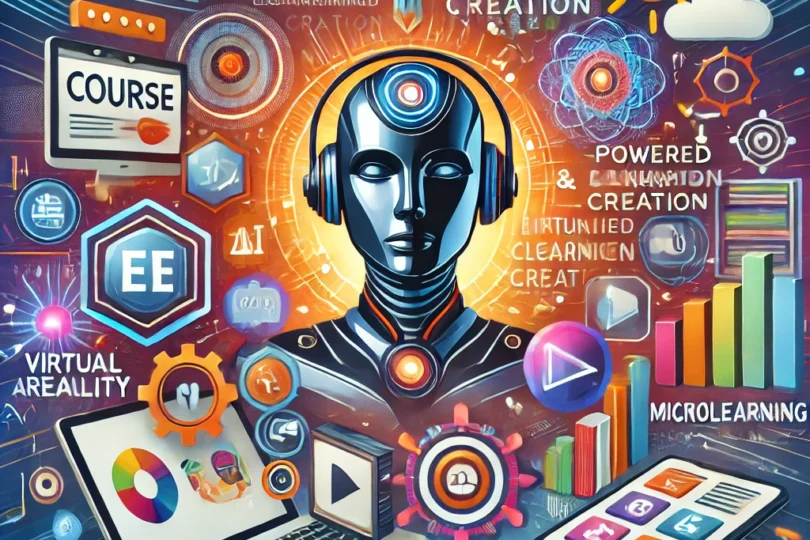Summary and Opinion
The e-learning landscape is undergoing significant transformations, driven by advancements in technology and evolving educational needs. Here are three key trends shaping the future of e-learning and educational content in 2024.
1. AI-Powered Course Creation: Artificial intelligence (AI) is revolutionizing the e-learning space by enhancing course creation and personalization. AI-powered platforms collaborate with educators to analyze data and offer nuanced recommendations, enriching course content. These systems help create adaptive learning experiences that cater to individual learner needs, providing real-time support and personalized content adjustments. This trend is crucial for tailoring education to meet the diverse needs of learners and improving engagement and outcomes.
2. Virtual and Augmented Reality (VR/AR): VR and AR technologies are at the forefront of creating immersive learning experiences. These technologies allow learners to engage in simulated environments, providing hands-on practice and enhancing comprehension. For example, VR can transport students to historical events or scientific environments, while AR overlays digital information onto the real world for interactive learning. This trend is vital for making learning more engaging and effective, especially in fields requiring practical experience.
3. Mobile Learning and Microlearning: The increasing reliance on mobile devices has made mobile learning a significant trend in e-learning. Mobile-optimized content ensures that learners can access educational materials anytime, anywhere, enhancing flexibility and convenience. Additionally, microlearning, which involves delivering educational content in small, bite-sized chunks, is gaining popularity. This approach aligns with modern learners’ preferences for short, focused learning sessions, making education more manageable and effective.
In conclusion, the e-learning and educational content landscape in 2024 is characterized by AI-driven personalization, immersive VR/AR experiences, and the convenience of mobile and microlearning. These trends highlight the importance of leveraging technology to create engaging, effective, and accessible learning experiences. As the digital education space continues to evolve, staying informed about these trends will be crucial for educators and organizations aiming to provide high-quality education.
Hashtags
#ELearning #EducationalContent #AIinEducation #VRARinEducation
Backlinks to Original Articles
https://www.selecthub.com | : | https://www.redmarker.io | : | https://www.proofed.com





This comment effectively highlights the transformative trends shaping the e-learning landscape in 2024. The integration of artificial intelligence (AI) in course creation and personalization is particularly noteworthy, as AI-powered platforms enhance educational content by analyzing data and offering tailored recommendations. This approach ensures that learning experiences are adaptive and cater to individual needs, thereby increasing engagement and improving outcomes.
The use of virtual and augmented reality (VR/AR) technologies is another exciting trend, providing immersive and interactive learning environments. VR can transport learners to different historical periods or scientific settings, while AR enhances real-world experiences with digital overlays. These technologies are revolutionizing education by making it more engaging and practical, especially in subjects requiring hands-on practice.
Moreover, the rise of mobile learning and microlearning reflects the growing preference for flexible and accessible education. Mobile-optimized content allows learners to access materials anytime and anywhere, while microlearning delivers information in concise, manageable chunks. This trend aligns with modern learning habits and enhances the effectiveness of educational programs by making them more digestible and easier to retain.
In conclusion, the e-learning landscape in 2024 is being shaped by AI-driven personalization, immersive VR/AR experiences, and the flexibility of mobile and microlearning. These trends underscore the importance of leveraging technology to create engaging, effective, and accessible educational content. Staying informed about these developments will be crucial for educators and organizations aiming to provide high-quality learning experiences in an ever-evolving digital world.